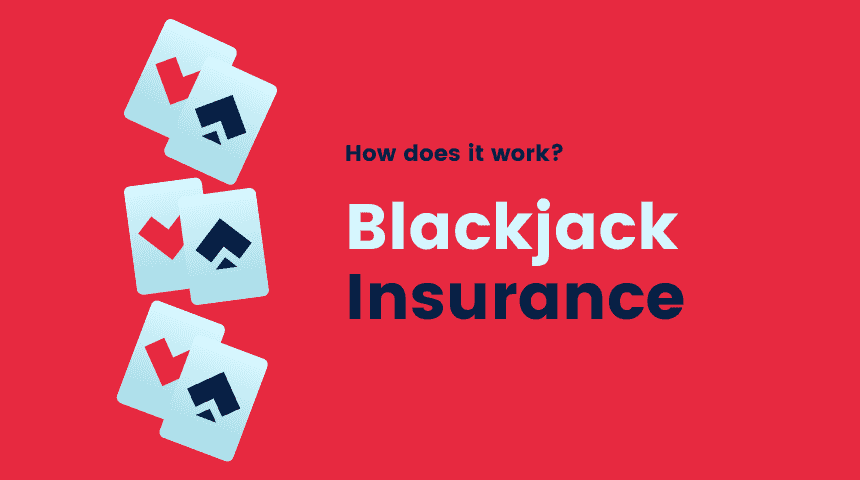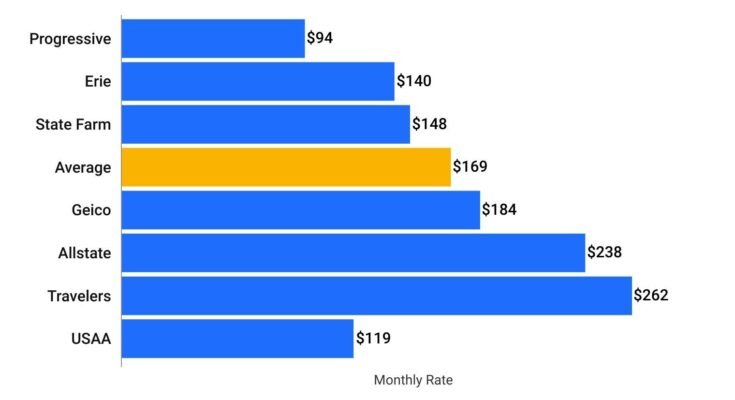Insurance in blackjack is a side bet available when the dealer shows an Ace. Players can wager up to half their original bet, essentially betting that the dealer’s hole card is a ten-value card, giving them a blackjack. If correct, the insurance bet pays 2:1, but it’s generally not a favorable long-term strategy since the odds of the dealer actually having blackjack are lower than the insurance payout suggests. To maximize winnings, focus on optimal playing strategies & avoid insurance unless you’re counting cards or have a strong sense of the deck composition.
How Insurance Works in Blackjack: A Complete Guide to Maximizing Your Winnings. Discover how insurance works in blackjack with our easy-to-follow guide! Maximize your winnings & enjoy the game like a pro. Join us now!

Understanding Insurance in Blackjack
In Blackjack, players face various aspects that enhance gameplay experience. One crucial feature involves insurance, which can protect players against potential losses when facing a dealer’s strong upcard. My personal experience with insurance in blackjack has been eye-opening. Initially, I underestimated its importance & often ignored it, but, over time, I adapted strategies that maximized my winnings.
What is Insurance in Blackjack?
Insurance represents a side bet in Blackjack, occurring when a dealer shows an Ace as an upcard. Players can place an insurance bet, usually half of their original wager. If the dealer possesses a blackjack (a ten-value card combined with an Ace), players win their insurance bets at 2:1 odds. Understanding this mechanism can significantly influence overall strategy.
When dealing with insurance, players should remember that insurance acts as a form of risk management. Since many experienced players emphasize strategic decision-making, a thorough grasp of available options enhances gameplay. While some may regard insurance as a fool’s errand, it can serve as a buffer against unpredictable outcomes, particularly when odds tilt in favor of dealer.
Exploring mathematical probabilities surrounding insurance reveals paradoxical opportunities. Applying basic principles of probability, players can assess whether placing an insurance bet aligns with their current hand’s strength & dealer’s visible card. In many cases, insurance might not offer a favorable return on investment, leading some players to forgo the option.
When Should You Take Insurance?
Deciding when to take insurance requires evaluating both player hand & dealer upcard. A dealer’s Ace signifies a potential blackjack, heightening threat level & prompting consideration of insurance. Players holding strong hands might feel inclined to secure insurance since risk of loss remains significant. Conversely, players holding weak hands might choose not gambling further.
In addition, players should analyze general table conditions, including specific casino rules & overall number of decks utilized. Different casinos operate under various rules, which directly affect odds associated with insurance. Understanding these nuances further equips players in making informed decisions, leading to long-term success.
On top of that, players should be self-aware regarding their risk appetite. Insurance may feel tempting during high-stakes games, but one must assess whether possible gains justify additional risk. Maintaining a level head during gameplay fosters better decision-making processes that ultimately lead to maximizing winnings.
Calculating Risks & Rewards
Engaging with insurance entails assessing both risks & rewards. Upon placing an insurance bet, players stand poised for either success or loss based on dealer’s hidden card. Statistically, around one-third of Aces reveal ten-value cards, leading many players to intuitively derive odds associated with their current wager.
Prevalence of knowledge regarding card distribution directly correlates with understanding long-term outcomes. Successful players recognize situations where insurance aligns with their overall betting strategy. Systematic examination of statistical outcomes, combined with mathematical calculations, enhances overall gameplay skills.
Players interested in maximizing winnings must practice patience while diligently evaluating risk-reward scenarios. Remaining vigilant while noting various outcomes assists players in determining which strategies or betting patterns yield positive results over time.
Risk Management Strategies in Blackjack
Effective risk management strategies remain paramount for achieving long-term success in blackjack. Developing strong principles surrounding insurance plays a crucial role, helping players avoid unnecessary losses or maximize potential rewards. Players can utilize these strategies:
- Recognize opportunities based on dealer’s visible cards.
- Analyze odds & payouts before deciding on insurance.
- Assess personal experience & bankroll to inform decisions.
- Utilize card counting techniques to gauge probabilities.
- Employ systematic betting strategies throughout gameplay.
The Mathematics Behind Insurance Bets
Delving into mathematics surrounding insurance bets unveils crucial insights into overall probability mechanics. Calculating expected values based on dealer’s upcard aids players in recognizing when opportunities become favorable. Expected value estimates likelihood of outcomes related directly to wagers & potential returns.
One essential equation considers probability of dealer achieving blackjack, which influences overall decision-making process. If a dealer exhibits an Ace, players should meticulously calculate expected value against potential loss versus insurance wager. This empirical approach elevates players’ ability to mitigate risk while optimizing profits.
| Dealer’s Upcard | Probability of Dealer’s Blackjack | Expected Value of Insurance Bet |
|---|---|---|
| Ace | 30% | 0.67 |
| 2 | 10% | -0.5 |
| 10 | 15% | -0.25 |
Analyzing Player Behavior with Insurance
Player behavior around insurance varies greatly among individual experiences & tendencies. Many new players might rush into placing insurance bets without fully understanding underlying principles. In a different context, seasoned players adopt strategic approaches, weighing risks carefully before committing funds to side bets.
This behavior stems from psychological factors that influence gameplay. Mindset significantly impacts decisions during blackjack, particularly when temptation arises concerning insurance bets. Exploring motivations for using or avoiding insurance enhances overall comprehension of risk management strategies in gambling.
Among proficient players, insurance might serve as a last resort rather than a go-to option. Utilizing historical data gathered during gameplay empowers players with insights on optimal approaches based on collective experiences, eventually steering strategies toward success.
Common Misconceptions About Insurance in Blackjack
Several misconceptions surrounding insurance in blackjack can lead to confusion among players. Addressing these myths helps newcomers navigate complexities while enhancing overall understanding of game mechanics. Some prevalent misconceptions include:
- Insurance guarantees a win.
- All players should take insurance when facing an Ace.
- Insurance bets decrease overall chances of winning.
- Insurance represents a high-return investment.
- Only novice players avoid insurance bets.
When Not to Take Insurance
Determining instances where avoiding insurance affords players better outcomes forms a crucial aspect of overall strategy. Many experts advise against taking insurance unless players hold extremely strong hands, as potential risks often outweigh rewards. When working with weaker hands, seeking other betting strategies tends to yield better outcomes.
Financial limitations may also impact decisions regarding insurance. Players should prioritize preserving bankroll while making strategic choices surrounding insurance. Placing needless insurance bets can deplete funds faster than anticipated, leaving players vulnerable in later rounds.
And another thing, it’s vital that players focus on long-term strategies rather than momentary distractions. Short-term gains offered by insurance may lure players in, but long-term success requires disciplined decision-making & careful assessment of overall risk tolerance.
Exploring Variations of Blackjack
Various blackjack variations introduce unique rules affecting insurance options available for players. Games such as European Blackjack, Vegas Strip Blackjack, or Atlantic City Blackjack can offer distinct gameplay mechanics incorporating insurance. Understanding how these variations influence gameplay including insurance enhances a player’s ability to adapt strategies accordingly.
Some versions may diminish availability of insurance or alter payout ratios. Thus, players must familiarize themselves with specific rules before engaging in any variation involving blackjack. With knowledge extending beyond standard rules of play, players cultivate a robust understanding of diverse tables & environments.
Experimenting with multiple variations opens opportunities for discovering new gameplay dynamics while refining one’s approach toward insurance. By exposing oneself to different styles, players can learn techniques applicable across titles a skill truly valuable within competitive settings.
Notable Strategies for Maximizing Insurance Bets
Adopting specific strategies tailored around insurance betting can significantly enhance player outcomes when engaging with blackjack. These strategies consider both gameplay nuances & psychological leveraging, ultimately guiding players toward greater profits. Implementing some of these strategies may include:
- Analyze table trends before placing insurance bets.
- Monitor experienced players for betting patterns related to insurance.
- Adjust strategy according to current bankroll status.
- Utilize probability estimations prior to making decisions.
- Incorporate holistic approaches toward risk assessment.
Insurance Strategies: Pros & Cons
Weighing pros & cons surrounding insurance within blackjack serves as a fundamental exercise in critical analysis. Recognizing advantages includes aspects like managing risks, recovering losses through potential winnings, & psychological benefits derived from feeling more secure during play. Be that as it may, disadvantages must also be considered, as they can offset perceived benefits.
Common disadvantages encompass increased overall risk exposure, potential for loss with marginal return on investment, & distraction from optimal gameplay as players fixate on side bets rather than primary objectives. Understanding these contrasting elements assists players in monitoring their decision-making processes while maintaining focus during gameplay.
| Pros of Insurance | Cons of Insurance |
|---|---|
| Protects against dealer blackjacks. | May lead to increased losses over time. |
| Can yield high payouts when successful. | Distracts from main betting strategies. |
| Reduces stress in high-stakes situations. | Utilizing insurance too frequently becomes costly. |

Conclusion
In summary, understanding how insurance works in blackjack can really help you make better decisions & potentially increase your winnings. Remember, insurance is a side bet that protects your hand if the dealer has a strong card. Be that as it may, it’s essential to use it wisely, as it can lead to more losses if not played correctly. By following the tips in this guide & knowing when to take insurance, you can enhance your overall blackjack experience. So, keep practicing, stay smart, & enjoy the game while maximizing your chances of winning!


